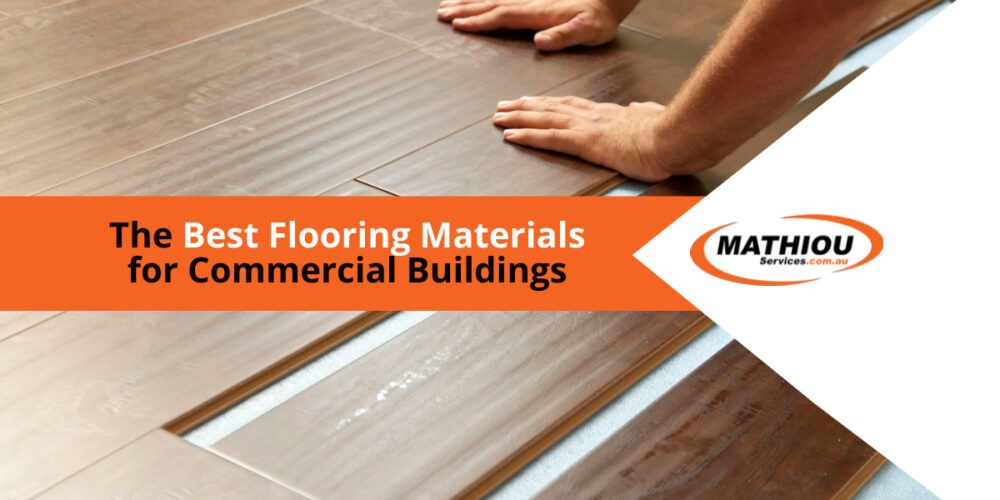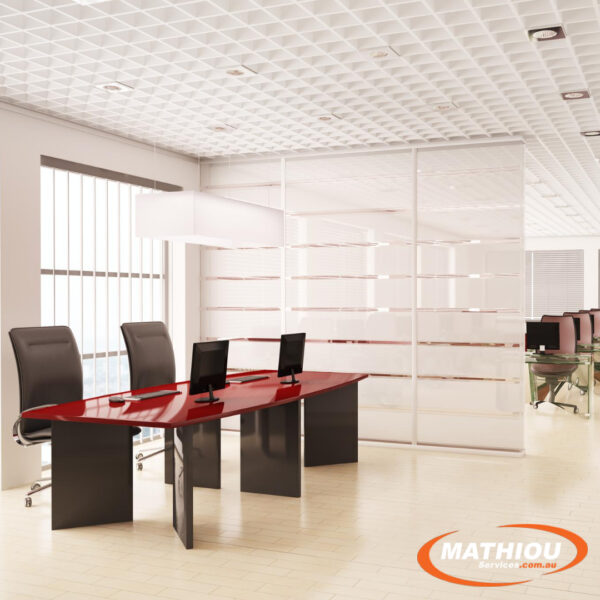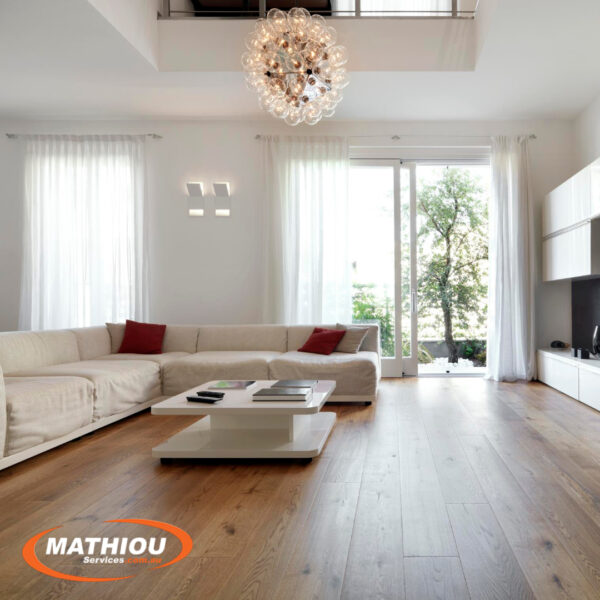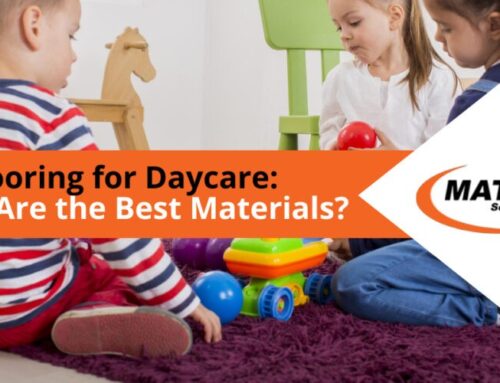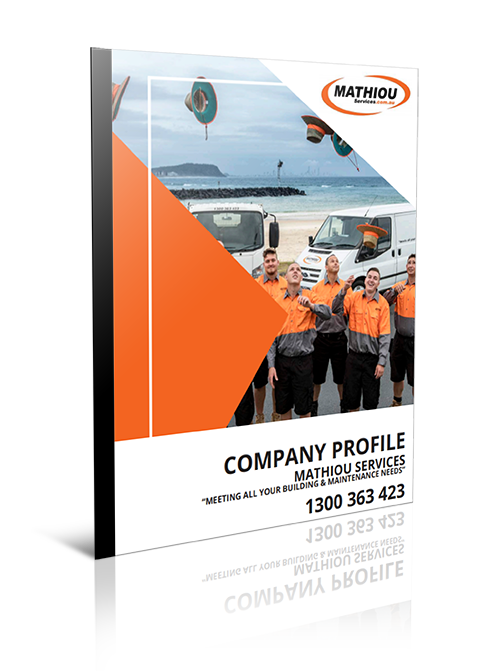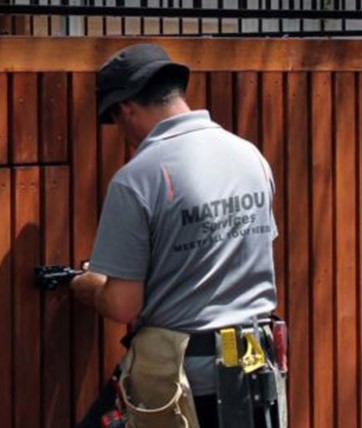Deciding on flooring materials can be a laborious task. This is due to the fact that the floor is the largest surface on your property. Picking the wrong flooring materials can be a disaster.
Other than the flooring materials, deciding what to put on your floor should be based on your budget, interior design of your property, functionality, and benefits. However, that would be a different discussion.
In this article, we will explain to you in detail, including the pros and cons of 10 types of flooring materials available in the market.
If you are interested in one of them, give us a call at 1300 363 423 or leave a message on our contact page, and we will provide you with your desired flooring materials, including flooring services and flooring installation service.
Where Do You Want to Place Your Flooring?
1. Office Buildings
If your property is an office building, you need to consider who your client is before deciding whether the flooring materials are for luxury service providers, professional services, or high traffic offices.
Hard and soft surfaces such as carpet inlays and tile or rugs and wood flooring can be a perfect combination for a luxury service provider. Carpet is the best choice for professional services such as a doctor’s waiting room or spa house. It could muffle sound, be durable, and have a wide range of colours that you can pick on. In comparison, vinyl flooring or polished concrete can be ideal for high traffic offices or properties.
If you have a different client, you can easily change your flooring with our flooring service. You can also make your flooring long-lasting with our flooring restoration service, including re-sealing, tiling, scratch removal, grouting, carpet cleaning, wood floor maintenance, carpet tiles, vinyl flooring, luxury vinyl, and more.
2. Retail Spaces
If your property is a retail space, you should consider the durability of your flooring. You don’t want to see a worn flooring just a couple of months after installing it due to high traffic.
Some materials could be ideal for high-traffic retail spaces such as rugged vinyl flooring and tiles for waterproof, wear-resistant, and easy-to-clean flooring. Wood floors and carpeting could be exquisite choices to wow your customers.
If you have a relatively small retail space, you really need to consider sound from your flooring when someone walks. Carpet could be a great choice as it will give you a quiet and intimate atmosphere.
Flooring Materials and Their Pros and Cons
1. Vinyl Sheet
Vinyl flooring could give your commercial space, including aged care facilities, an appealing and authentic visual at a budget cost. This is due to its versatility to mimic a wide variety of materials such as hardwood, stone, and ceramic tiles for only half the price of those materials.
It is possible to print vinyl sheets without grout lines to create a seamless look and authentic feel, making this flooring perfect for commercial offices, public service centers, restaurants, schools, and even aged care facilities.
However, if damaged, you either have to replace the whole floor or cut a portion of the flooring and replace it with the new one, risking water penetration through the gap or failing to get the exact original pattern or color.
Pros
-
- Water-resistant.
- Soft underfoot.
- High longevity.
- Inexpensive.
- Easy to maintain and install.
- Cons
- Hard to repair.
- Prone to discolouration, particularly the low-quality vinyl sheets.
2. Natural Wood Flooring
For most people, natural wood flooring is the most pleasing and calming to look at. It gives a luxurious and timeless atmosphere to their property. Each flooring could have different characters depending on the species of the tree.
However, as it is a natural material, it is not resistant to water, temperature, and humidity. Therefore, it is unsuitable for high-moisture rooms such as bathrooms, laundry rooms, and kitchens.
To counter this, technology has made it possible to coat the natural wood with a seal such as polyurethane, making it water-resistant; however, it should be reapplied regularly.
The limited amount of wood produced in each tree also makes this flooring rather expensive than other materials. It also depends on the species. The rarer the species, the higher the price. Natural wood flooring is perfect for low traffic areas such as residential, and commercial spaces with less traffic.
- Pros
- Give luxurious looks.
- Can withstand heavy objects above the flooring.
- Easy to clean and maintain with neutral, wood floor maintenance chemicals.
- Cons
- Expensive.
- Resealed twice a year to prevent damage caused by water and temperature.
- Hard underfoot.
- No sound insulation.
3. Engineered Wood Flooring
This type of flooring is designed to have high similarity to natural wood at a more affordable price. Its top layer is made from a thin hardwood bonded over a high-quality plywood substrate.
- Pros
- More resistant to moisture and water than natural hardwood.
- Small possibility to warp.
- Easy to install with a number of different techniques.
- Cons
- Not fade-resistant.
- Different quality even in the same product.
- Sometimes possesses a hollow underfoot.
4. Carpet Tiles
This type of carpet gains popularity because of its affordable price and versatility. This flooring is a pre-cut piece of carpet that can be easily installed onto the floor, similar to tiles made from porcelain. In addition, carpet tiles can be installed without underlay, as it is built-in underneath the carpet.
Similar to broadloom carpet, carpet tiles can come with various designs, including different textures and layouts. You can even create your own pattern in a tiled format which can be customised with a little bit of creativity.
- Pros
- Simple to install.
- Easily repaired and replaced.
- Cons
- Expensive and harder underfoot, compared to broadloom carpet.
- Visible seams.
5. Broadloom Carpet
This type of flooring is largely used in corporate spaces. This is because it can cover a large area with one universal design, wall-to-wall. It has a soft contour because it is installed above a separate underlay above the floor slab.
This flooring allows a seamless and consistent design in large spaces, which come in handy if the client wants to put some advertising or personalized logo on it.
- Pros
- Inexpensive compared to carpet tiles.
- Personalised design without repetition.
- Seamless finishing.
- Cons
- Takes time to install as the package comes in a big roll.
- Prone to moisture damage.
- Takes time to repair and replace.
6. Laminate
This type of flooring is one of the most popular among Australian homeowners and can be an alternative for carpets flooring. Made from particleboard wood, topped with wood or tile photo beneath a clear protective layer made from plastic. You have the freedom to DIY this flooring, and it comes with many textures and colour options.
- Pros
- Inexpensive.
- Easy maintenance.
- Resistant to scratches and moisture.
- Durable.
- Soft underfoot.
- Cons
- Easy to chips from sharp objects.
- Have a different look and texture from wood.
- Has a hollow sound underfoot.
- Does not provide sound insulation.
7. Tile
This type of flooring is perfect for your bathrooms and kitchens as it is water-resistant. The most common tile material is porcelain which comes in a number of styles and colours.
- Pros
- Water-resistant.
- Durable.
- High-longevity.
- Cons
- Expensive but a cheaper alternative for stones.
- Takes time to install.
- Numerous preparation works before the installation.
- Cold and slippery.
8. Stone
Granite, marble, travertine, and sandstone are popular flooring types for both indoor and outdoor. Those natural stones are extremely durable and water-resistant.
Many people choose natural stones as flooring materials because of their exquisite natural beauty and quality, which brings a luxurious atmosphere.
- Pros
- Elegant.
- High longevity.
- Water-resistant.
- Cons
- Expensive.
- Takes time to install.
- Numerous preparation work before the installation.
- Cold and slippery.
- High maintenance.
9. Concrete
In today’s fashion, concrete is seen as a modern and sophisticated approach to garnish your property with a sense of industrialism. With modern techniques of concrete finishing, you can have a luxurious result. This type of flooring is durable but is easy to clean with easy maintenance. You can have a bi-monthly waxing treatment that could help keep the stains away from your concrete flooring.
- Pros
- Low maintenance.
- Extremely durable.
- High longevity.
- Personalisation possibility for design.
- Cons
- Hard underfoot. Please put warning signs as accidents in this type of flooring are dangerous.
- Prone to damage to water if not sealed properly.
- Cracking due to temperature, moisture, and settling.
10. Alternatives
Other than those mentioned materials, some materials can be alternatives to consider for your property, such as
- Terrazzo: A durable composite made from natural stone chips and resin.
- Bamboo: An eco-friendly choice for hardwood flooring.
- Rubber: A natural material with high durability and a non-slip surface.
When deciding on flooring materials, you have all the freedom. However, Mathiou Services is the go-to professional when it comes to flooring restoration! Our experienced technicians can help you with flooring services completed to the highest standard.
You can visit our gallery to learn more about our work and get some inspiration for your next flooring project. If you have any questions, call us at 1300 363 423 or leave a message on our contact page to get a quote or visit your commercial property!

